The curious case of the Gevril Tribeca: 5 reasons why it is the king of homage watches
Zach BlassHomage watches within the enthusiast community can be quite a contentious topic at times. Are they rip-offs? Cash cows? Sell-outs? Unoriginal? The reality is opinions can vary, but the true metric or equaliser of any watch to an extent is how they perform on the grey or second-hand market. While the objective of most homage watches is to supply a mass-produced low-cost alternative to widely renowned designs, the Gevril Tribeca has established itself as the textbook example of how to release an homage watch.
The watch is so desirable that it now sells at practically three times or more its final retail price of $2900. The last watches sold at retail were in 2018 when Revolution sourced 67 NOS watches that had yet to be assembled from Gevril. A year later, at Christie’s (in an online auction in partnership with The Keystone), one was sold without box and papers for $9375! So, what makes this watch the king of homage? Let’s explore the curious case of the Gevril Tribeca…
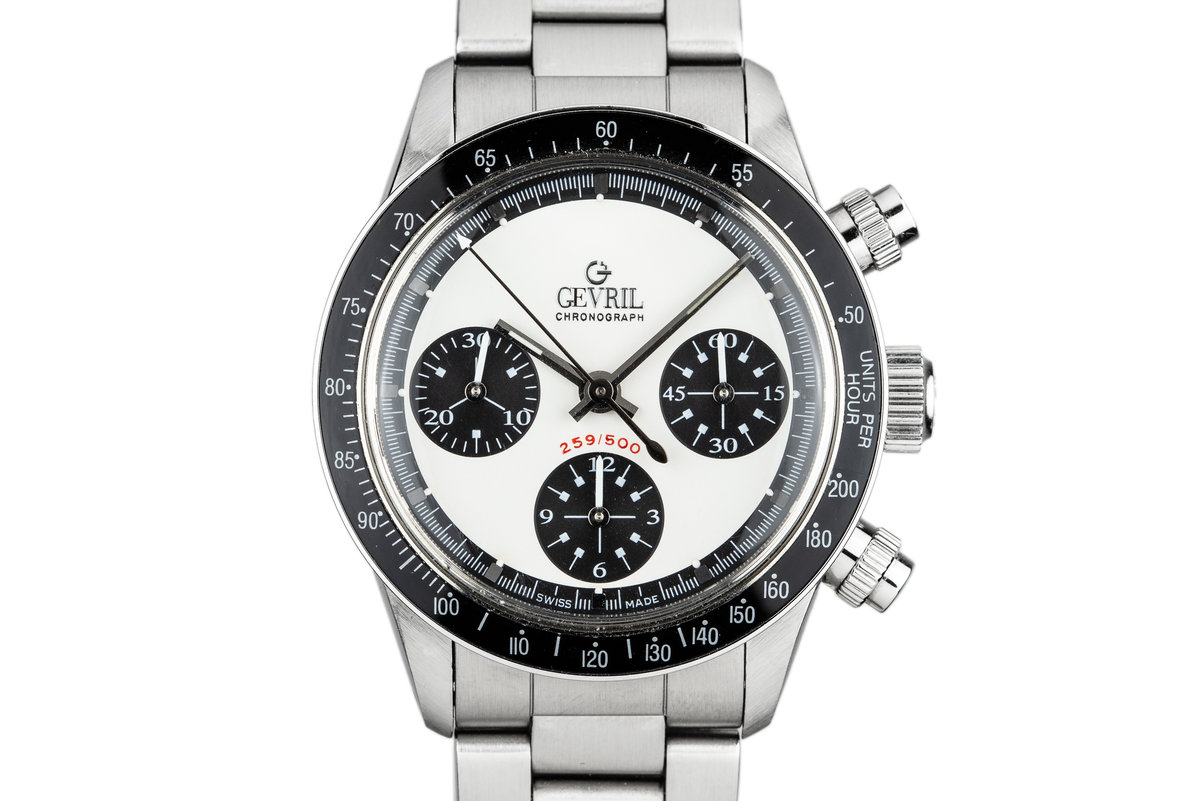
I know what you are thinking: Zach, it’s a Paul Newman Daytona homage … of course it’s desirable. Upon closer examination, however, this is not the full story. As an example, the watch brand Alpha has also created an homage to the now famous Newman Daytona references, but they do not trade anywhere near the same value as Gevril’s Tribeca. Let’s take a look at five reasons the Gevril Tribeca reigns above the rest.
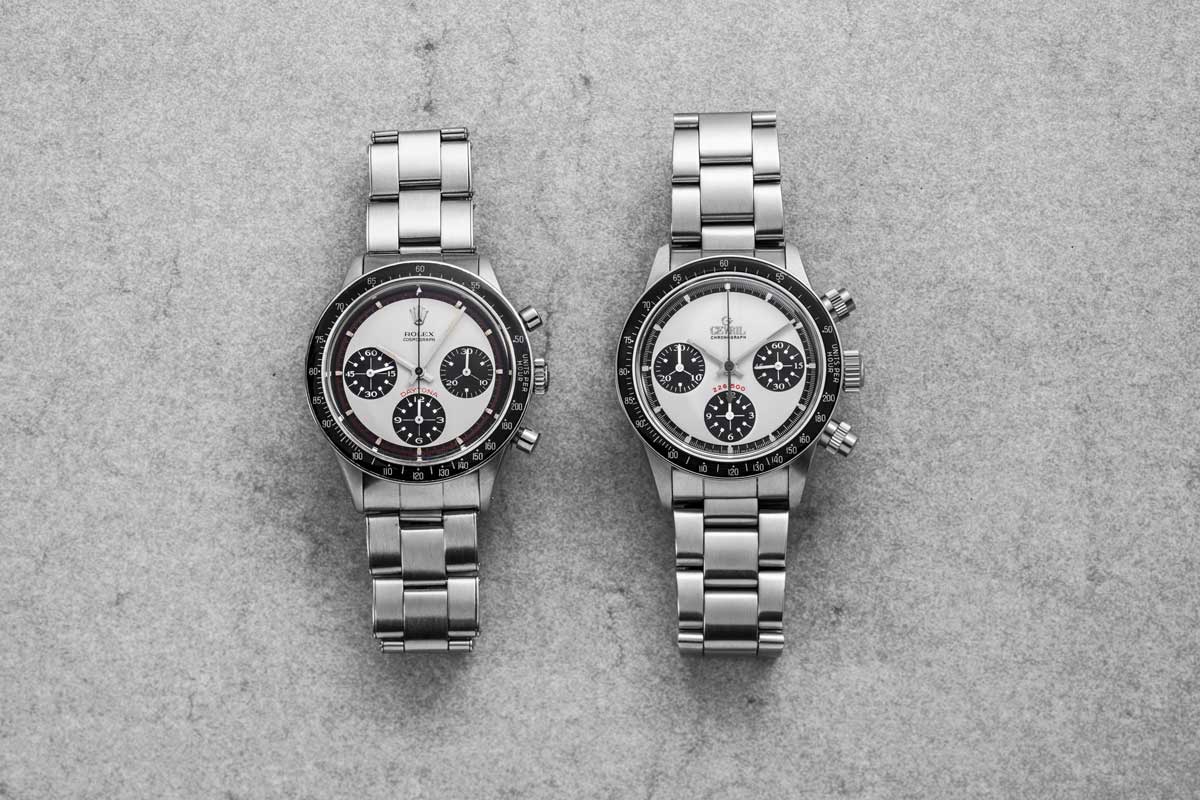
1. It’s extremely faithful to the original
Gevril, in a pursuit to make a faithful tribute to the original, made sure the model they produced met the same profile as the original. With the Tribeca being 37mm in diameter and 15mm thick, it shares the exact dimensions of the watch it pays tribute to. The Alpha incarnation, on the other hand, is 39mm in diameter and 16mm thick, which in a way defeats the purpose of reviving a vintage/classic design. According to venerated collector and vintage watch dealer Eric Ku, the bezel and pushers on the Gevril Tribeca are so faithfully made that they can be interchanged with those of actual Paul Newman references. Even for those who own Paul Newman references, these watches are alluring in the sense they can in a worst-case scenario help restore one’s watch if a pusher is lost in action.
The only small variation in profile is due to the different movement housed inside the Gevril, which due to its modularity causes the crown to sit differently in regard to the placement of the pushers (something the Gevril team worked extremely hard to minimise). The dial printing far exceeds the quality of its homage competitors, with the font being practically indistinguishable from its source of inspiration. Although the dial on the Gevril was not produced by Singer, as it was in the original, they manage to achieve the same emotional feel and presence of its vintage predecessor. While a loupe would distinguish variations in the size of the chapter ring around the dial, the narrowness/thickness of the font, as well as the depth of its sub registers (which are more “stepped” on the vintage Newman Daytonas), the naked eye would be much more forgiving and one would be hard pressed to determine it was an homage unless one got close to the wearer.
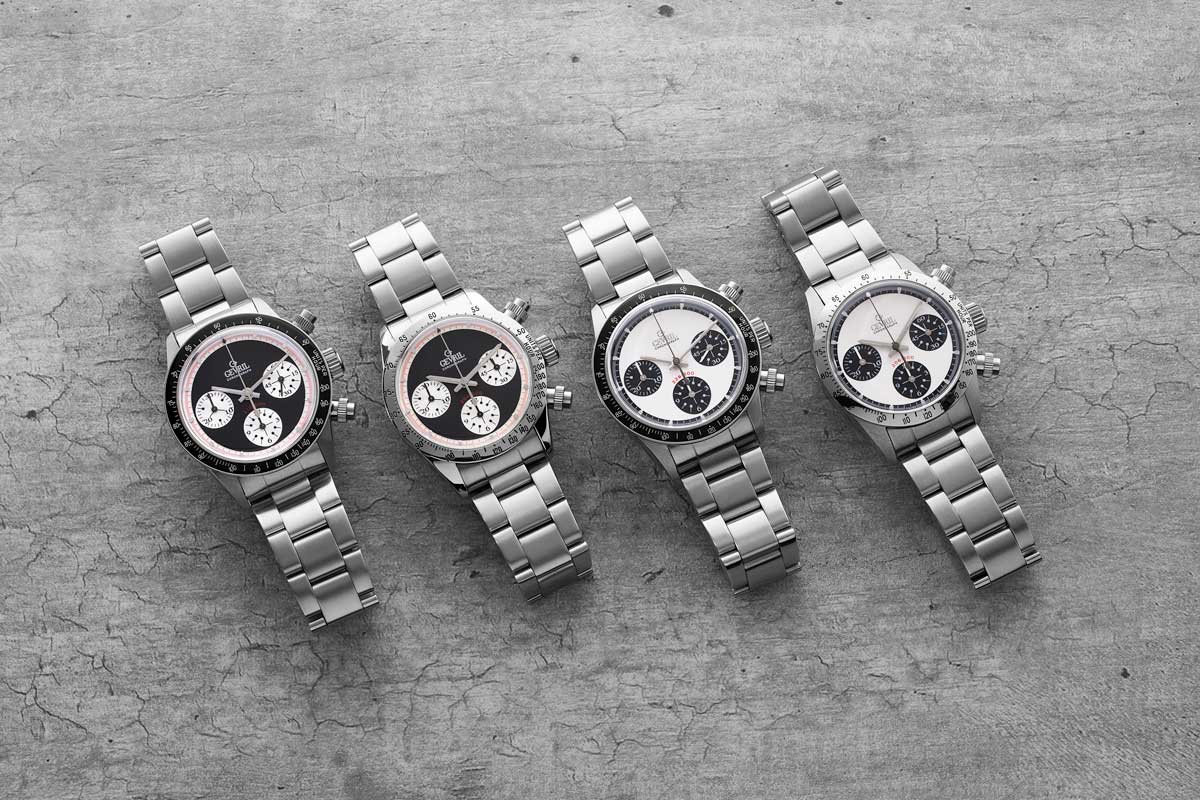
2. It utilises high-quality Swiss components to attract collectors
Building on the above, the Gevril Tribeca, while not utilising NOS Valjoux 72 movements, does substitute it for a well-built alternative. By utilising a modular Dubois Dépraz design built on top of an ETA 2824 base you get a tag team of a workhorse movement with a renowned chronograph module used by some of the most well-known luxury brands in existence. While usually paired with ETA calibers by the likes of Omega and Breitling, it has also been paired with haute luxury watches such as the Royal Oak Chronograph in early generations produced by Audemars Piguet and even some watches made by the likes of Richard Mille. The Alpha, on the other hand, uses a Seagull movement, which is visible through an exhibition caseback (which is not a feature of Rolex Sport models of any era).
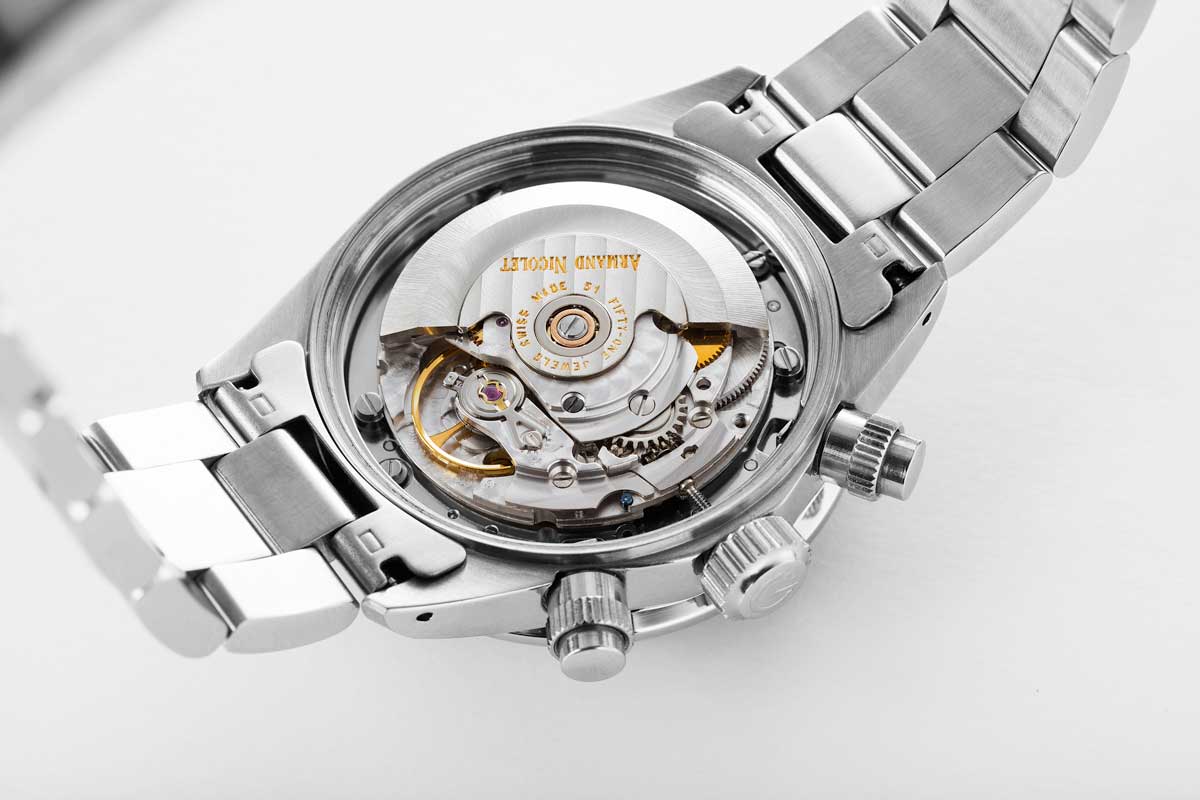
3. It pays tribute to a design that is extremely expensive and unattainable for most buyers
While panda dials still appear in present-day collections of various brands such as Hamilton, Omega and Breitling, they do not give off the same vibe as the panda configuration found on Newman Daytona models. With the aesthetic effectively restricted to a much more expensive vintage model, it was only a matter of time before demand grew for an alternative to satisfy the desires of watch fanatics. It is interesting to note that while still coveted in design when the Tribeca was produced in 1999, the Newman Daytona was nowhere near its value today, selling for roughly $20,000 when these limited-edition tributes were produced.
It would be at least a decade before Paul Newman models eclipsed the $200,000 mark. The value of the Tribeca, being so faithful to the original, was effectively tied to the escalation of Daytona-mania. While previously selling under its RRP pre-owned, as Daytona prices began to rise, collectors looked towards the Gevril as a way to find the same emotion and aesthetic. I mention this fact to give even more credibility to Gevril’s intentions, as the Newman models of the day were not the powerhouse references they are today and did not have the same allure as they do now. The fact that Revolution was able to sell models that were effectively yet to be sold and never produced also conveys just how much less known the Newman references were at the time and how it was a far less obvious cash grab when Gevril produced its initial run. It was really a niche revival. They effectively did it before it was cool to do so, at least by mainstream culture’s standards.
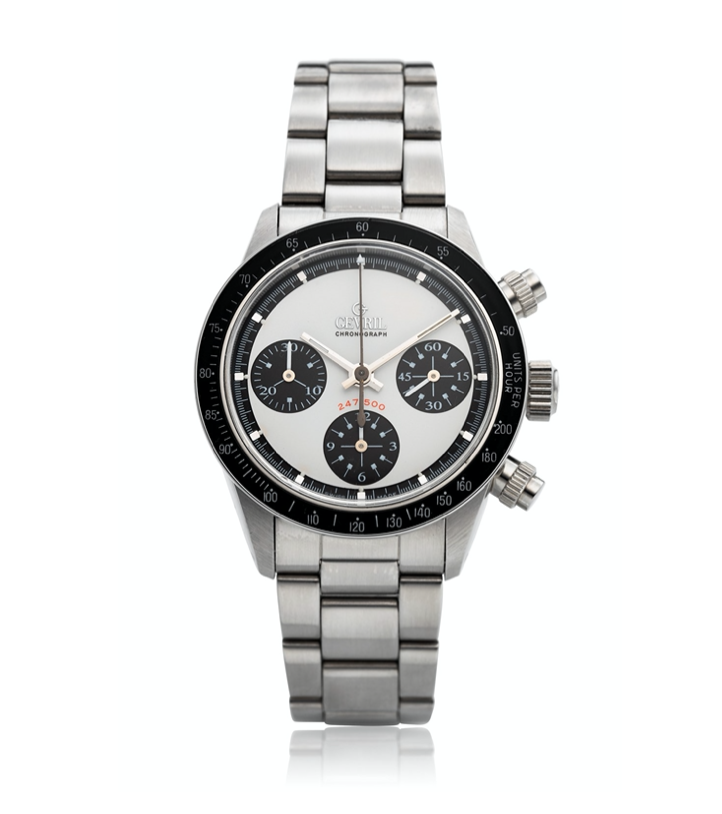
4. The design it pays tribute to is discontinued and is therefore impossible to find in a new watch otherwise
I think most collectors would agree that homage is much more forgivable if two conditions are met. First, the watch should be a discontinued design that the brand does not use, nor has any intention to bring back anytime soon. Second, the watch being re-created should be very restrictive in access, whether prohibitive in quantity or price. I believe the Gevril meets these two criteria as, in the current marketplace and economy, spending $250,000 plus on a vintage watch is not on the cards for most watch wearers. Gevril Tribeca models find their strength in their build quality and limited quantity, which, as an example, distinguishes itself above Invicta Divers and other low-quality Submariner rip-off designs built and sold in mass quantities.
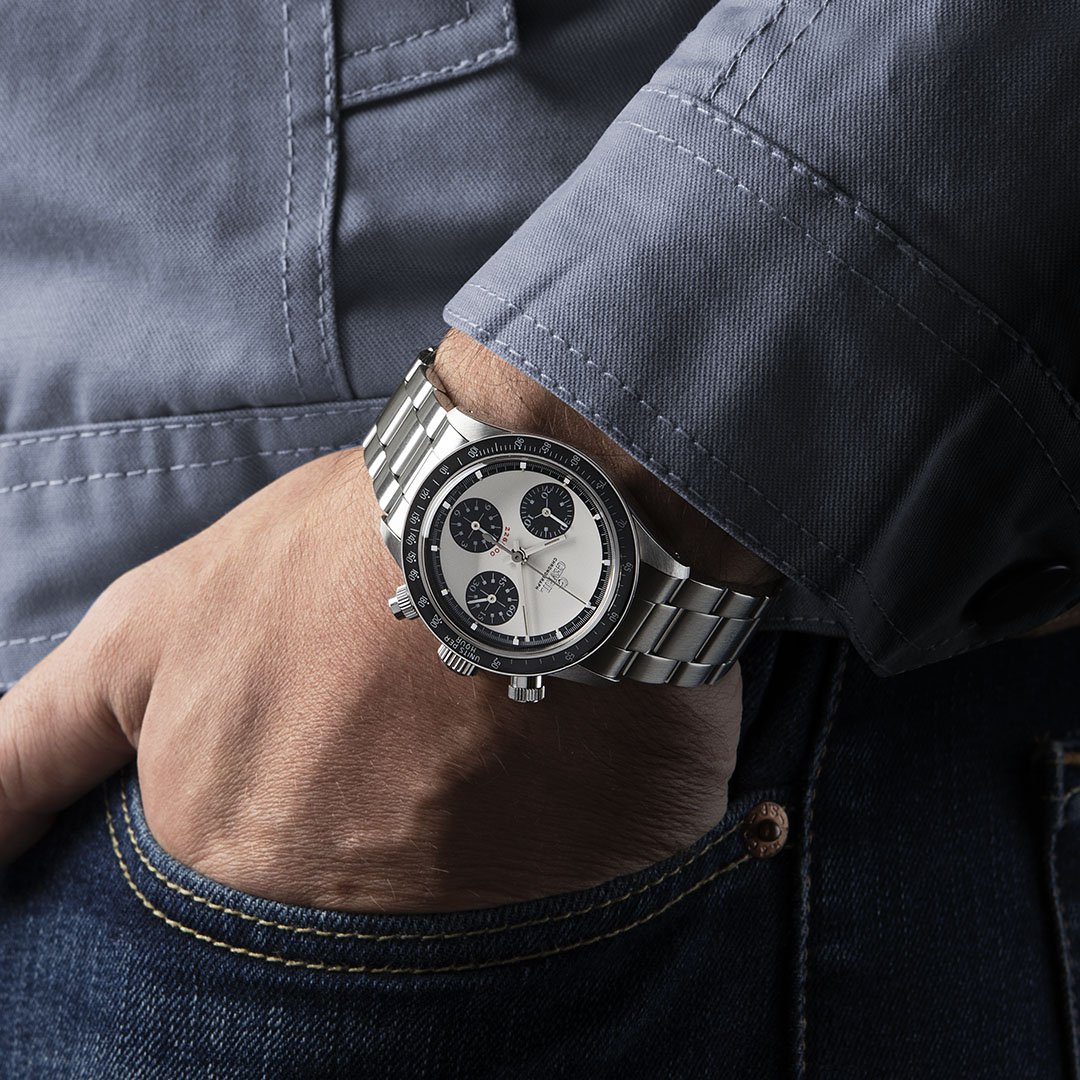
5. It was a limited edition
The fact these watches are limited in production caters both to the desirability of the model as well as the integrity of Gevril for not flooding the market with these pieces. If it were a standard production model, while it would still have the excellent quality build, there would be no incentive to buy the model at four times over retail, which begins to hit the price territory of Omega Speedmasters and Rolex Submariners and GMTs. It is evidence that it was Gevril’s mission to make something special from both a standpoint of fabrication and collectability. As I mentioned, usually homage as a category is a mass-produced solution to the marketplace that cannot afford the actual reference.
By limiting production, it reveals the aim of the model was to create a faithful, well-built watch that, aside from a few differences, could be interchangeable with the original Rolex models. Gevril today is by no means a ubiquitous and top-selling watch brand. It does not benefit their bottom line to restrict quantities of the Tribeca. It would be easy for them (to an extent) to have revived the revival as the Newman references exponentially grew in value in the decades after the Tribeca’s release. But rather than sell out, Gevril protects the integrity of its revival and those who initially purchased the watches from them. This decision has a high level of integrity as many watch brands today would be quick to leverage bestsellers to bring greater profits to their brands.
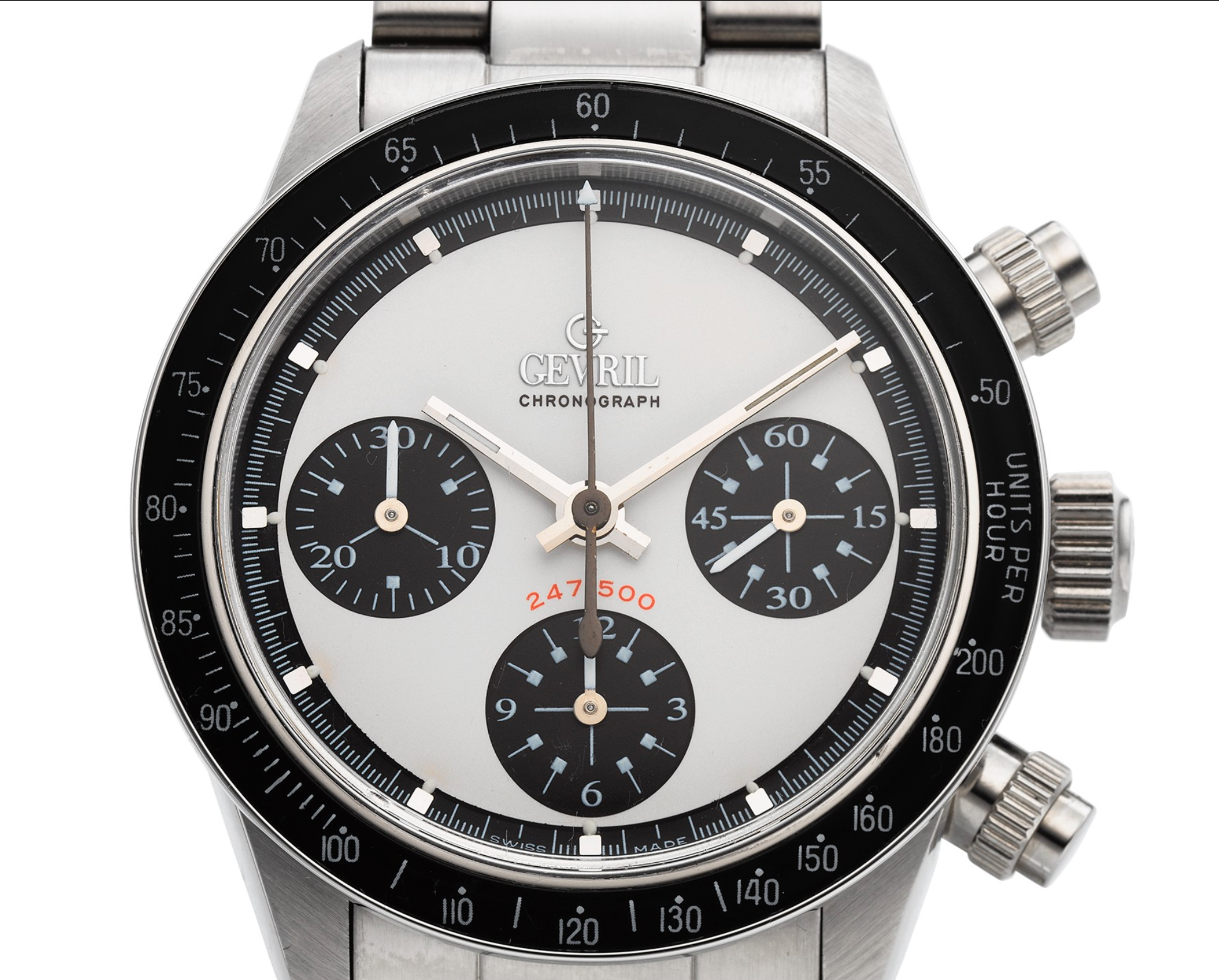
Taking the above five factors into consideration, it is hard to critique the success of the Gevril Tribeca. Its initial under-the-radar run only supports the way in which this homage was executed. It was not an obvious move to make 21 years ago, but I think we can all agree we are happy they did, and should be considered a role model for other companies looking to make homage design work for both the creator and consumer.




